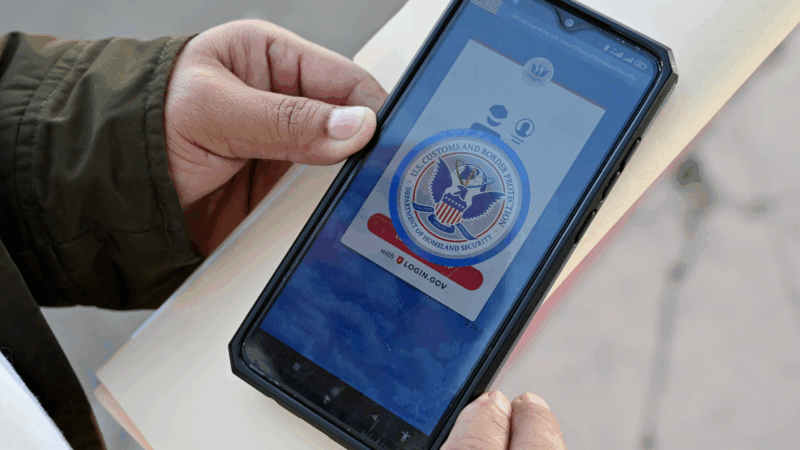Trump offers $1,000 incentive to migrants who leave the country voluntarily
The Trump administration announced it is offering a $1,000 incentive to migrants who “self-deport” using the CBP Home App that was once used to seek asylum.
The Homeland Security Department pitched the monetary incentive as a more cost-effective (for the government) and “dignified” way to leave the country. The department has been working to ramp up the speed and number of arrests, detentions and removal of immigrants without legal status over the last few months — a costly and resource-intensive endeavor.
The department estimates the average cost of arresting, detaining and removing someone without legal status amounts to around $17,121.
Immigration enforcement officials have noted that detention capacity is maxed out and the administration is seeking to streamline removals.
Trump’s border czar Tom Homan told Fox News on Monday that more than 7,000 people have used the app since it was rebranded from facilitating asylum requests to promoting removals.
Officials canceled asylum appointments on the app within hours of President Trump’s inauguration in January. The administration then launched a new effort last month that urged migrants to leave “immediately” using the app.
The administration is banking on the fact that migrants would rather leave the country than risk being arrested by immigration officials and face a fine — a choice many are now grappling with.
DHS also announced it has already used the monetary incentive once to transport someone from Chicago to Honduras. The agency added that people without legal status have booked additional plane tickets for this week and next.
But immigrant advocates are skeptical. Even if some people may take the administration up on their offer, immigration advocates say most don’t believe they will ever receive the incentive and eventually be able to apply for legal status, as the administration has suggested.
DHS did not respond to questions about how many people were set to be paid and how the incentive is issued.
There are some 11 million people without legal status in the country, according to estimates from 2022.
“They’re clearly out of touch with the reality that immigrant families and communities and individuals face in this country, and why they’re here in the first place,” said Esther Reyes, campaign strategist for the Protecting Immigrant Families coalition.
Reyes says families targeted by this messaging have long felt the threat of removal.
“A lot of the fear that communities feel has been around for a long time; particularly for people who are here without any kind of legal status, every day is a risk,” Reyes said. “Unfortunately, folks are used to the threats, whether small or large, that come their way on a regular basis.”
House Dem. Leader Jeffries responds to air strikes on Iran by U.S. and Israel
NPR's Emily Kwong speaks to House Minority Leader Hakeem Jeffries (D-NY), who is still calling for a vote on a war powers resolution following a wave of U.S.- and Israel-led airstrikes on Iran.
Iran’s Ayatollah Ali Khamenei is killed in Israeli strike, ending 36-year iron rule
Khamenei, the Islamic Republic's second supreme leader, has been killed. He had held power since 1989, guiding Iran through difficult times — and overseeing the violent suppression of dissent.
Found: The 19th century silent film that first captured a robot attack
A newly rediscovered 1897 short by famed French filmmaker Georges Méliès is being hailed as the first-ever depiction of a robot in cinema.
‘One year of failure.’ The Lancet slams RFK Jr.’s first year as health chief
In a scathing review, the top US medical journal's editorial board warned that the "destruction that Kennedy has wrought in 1 in office might take generations to repair."
Here’s how world leaders are reacting to the US-Israel strikes on Iran
Several leaders voiced support for the operation – but most, including those who stopped short of condemning it, called for restraint moving forward.
How could the U.S. strikes in Iran affect the world’s oil supply?
Despite sanctions, Iran is one of the world's major oil producers, with much of its crude exported to China.




